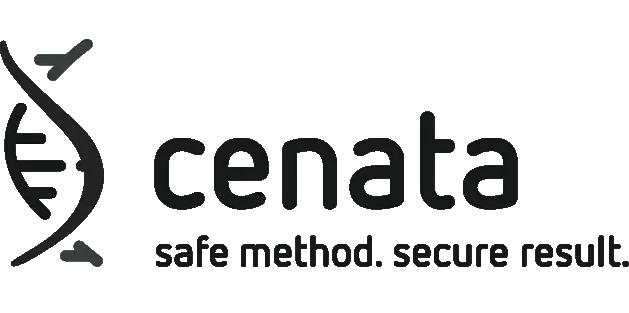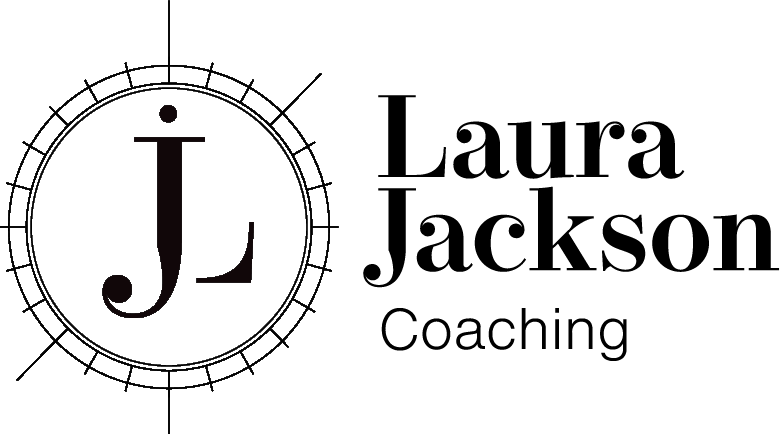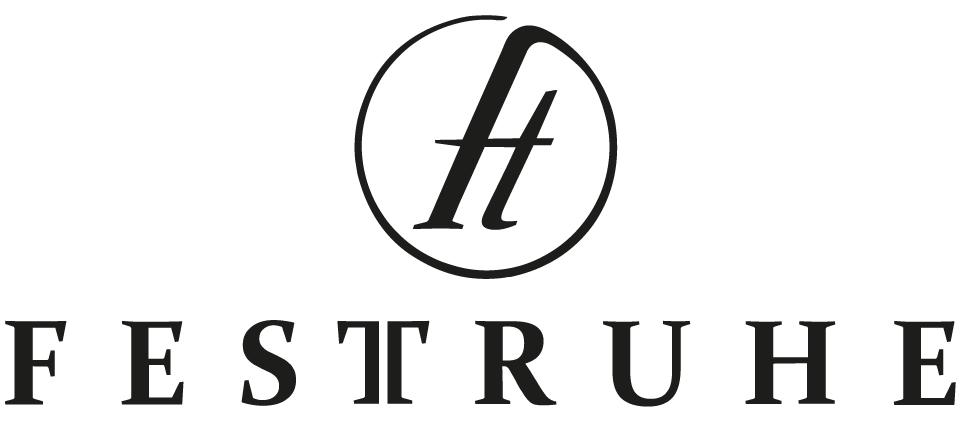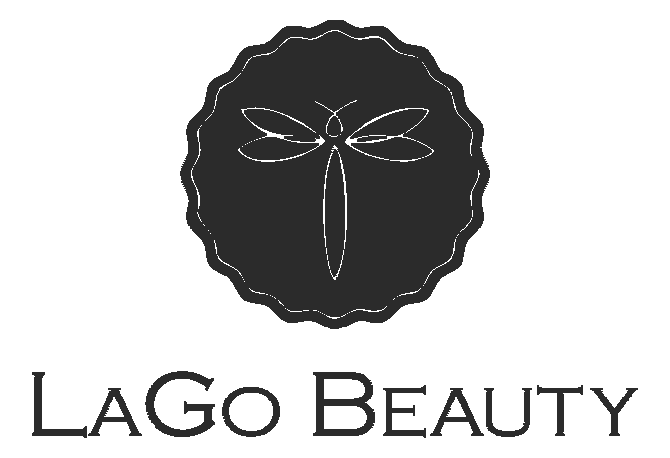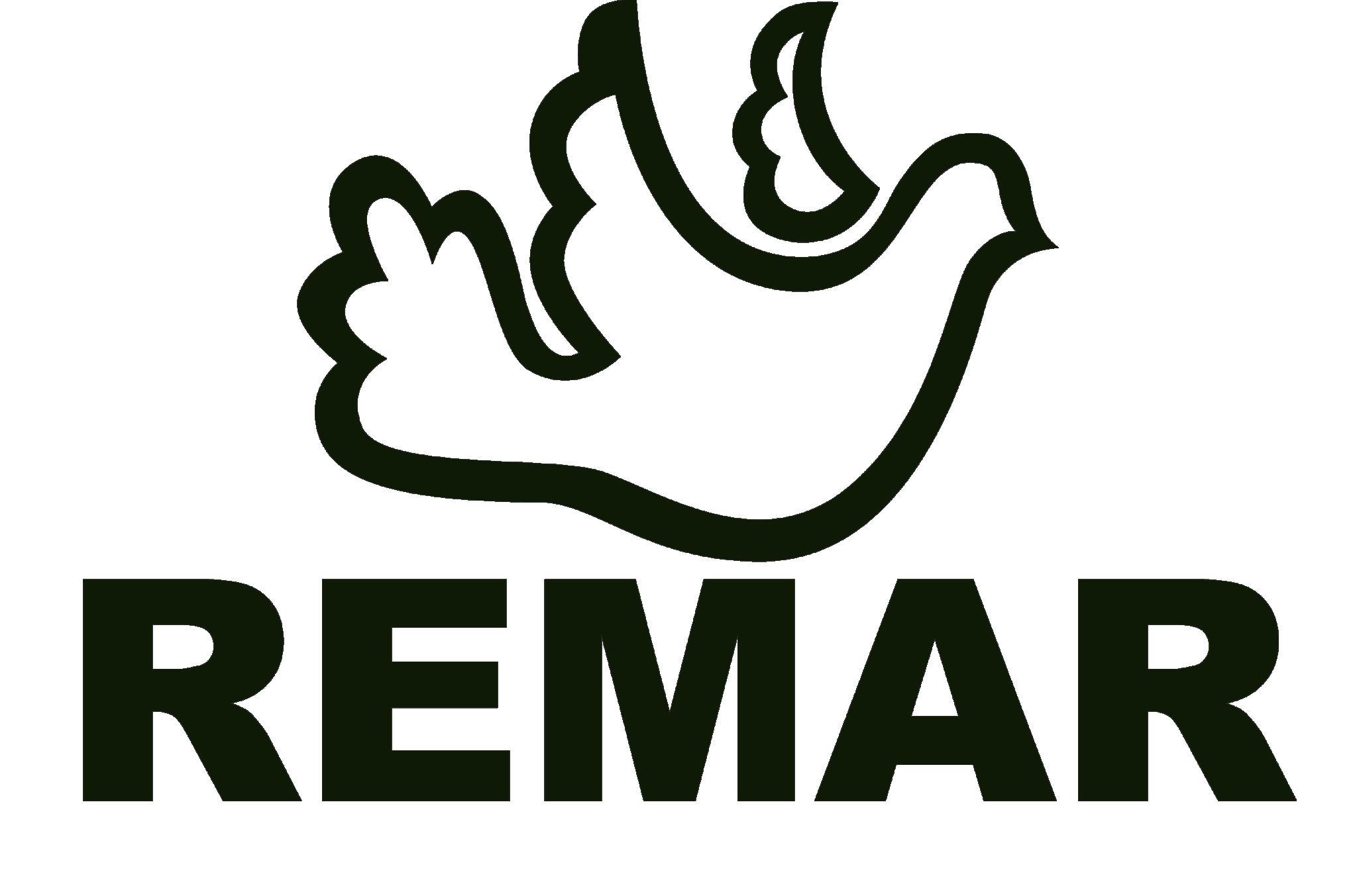SEO – Web design – Google Ads – Social media
SEO certification ESEOL: Certified quality for top rankings
Every website we create is independently checked for over 100 SEO criteria – your guarantee for visibility right from the start.
- Future-proof strategies
- Measurable results
- Individual advice
- Experience meets innovation
Individual marketing solutions
Graphic design
We create modern designs that visually strengthen your brand, create trust and are remembered for a long time.
Website creation
We create modern, search engine optimized websites that convince, create trust and generate leads.
Online stores
We develop sales-boosting online stores that present your products in the best possible way and lead customers directly to a purchase.
Online marketing consulting
We analyze your marketing holistically, develop clear strategies and sustainably increase your online presence.
Accessibility
We check and optimize your website according to BFSG standards - for legal certainty, greater reach and better SEO.
Domain & Hosting
We take care of domain, hosting and maintenance - everything from a single source, secure, fast and professionally managed.





Your new website: Beautiful, but invisible to Google?
You invest in a professional website to be successful online. But what good is the most appealing design if potential customers can’t find your site on Google, Bing and other search engines?
Today, a beautiful website alone is no longer enough; it must also meet the technical and structural requirements of modern search engines in order to have any chance of achieving good rankings.
This is exactly where we come in with our quality guarantee. We don’t leave the search engine optimization of your new website to chance. Instead, we have every website we create comprehensively tested and certified by the independent testing company Cert-Eu.
In this way, we ensure that your investment is based on a solid SEO foundation right from the start.






Objective confirmation: The ESEOL certificate from Cert-Eu
The goal is a website that not only impresses you and your customers, but also search engines. The ESEOL certificate (European Standard for SEO certified Websites Level) objectively confirms that your new website meets basic to advanced SEO standards.
This independent audit gives you the assurance that important ranking factors have been taken into account.
Our task is to create the technical and content requirements for this certificate. We build your website according to the strict criteria of Cert-Eu.
The site then undergoes the testing process, in which over 100 criteria are examined. You then receive the certificate in bronze, silver or gold as well as the detailed test report.
More than just a seal: your strategic advantage on the web
Some may regard a certificate as just a “piece of paper”. But ESEOL certification offers you concrete advantages: it is a proof of quality for customers and partners. It ensures that costly SEO improvements after the launch are avoided. And it gives you the certainty that your website is technically optimally prepared to be preferred by search engines such as Google or Bing.
Better ranking potential through tested SEO quality
A website that has been checked according to ESEOL standards fulfills important technical and structural requirements for good rankings. This gives your site a better chance of being found for relevant search queries and generating organic traffic right from the start.
Independent proof of the quality of your website
The ESEOL seal is a visible sign of quality and professionalism. It signals to visitors and business partners that your website has been optimized according to recognized standards, which creates trust and strengthens your brand.
Avoiding technical SEO problems right from the start
Certification ensures that basic technical SEO errors are avoided. This saves you subsequent, often costly, re-optimizations and creates a solid basis for all future online marketing activities and content marketing measures.
Analyze your website for free – more visibility now!
Have your website analyzed free of charge and discover optimization potential immediately. Get a quick SEO check with clear tips for better rankings, more visibility and more customers - free of charge, professionally and without obligation.
The testing process: transparent and traceable
The certification of your new website follows a clear process.

SEO-compliant creation
We build your website according to the more than 100 test criteria of the ESEOL standard (technology, content, structure).

Independent audit
Cert-Eu carries out the website audit as a neutral body and assesses compliance with the criteria.


Test report & analysis
You will receive a detailed test report documenting the results and highlighting any potential.

Granting of certificate
If the examination is successful, the ESEOL certificate is issued at the level achieved (bronze, silver or gold).

Ready for a website with certified SEO quality?
Invest in a website that not only impresses, but is also found. Rely on tested quality right from the start. Contact us now for a free initial consultation on your new, SEO-certified website!
Frequently asked questions about ESEOL SEO certification
What exactly does the ESEOL SEO certification test?
ESEOL certification by Cert-Eu checks your website for over 100 relevant on-page SEO factors. These include technical aspects such as loading time, mobile-friendliness, clean code structure and indexability for search engines. Content criteria such as the correct use of headings, meta data and image optimization are also evaluated. The aim is to ensure that your website has a solid technical and structural basis for good rankings on Google and other search engines.
What specific advantage do I have from an ESEOL certificate?
The main benefit is the objective confirmation that your new website meets basic and important SEO standards. This gives you security for your investment. In addition, the seal serves as proof of quality for customers and partners. The audit also helps to identify and avoid potential technical SEO problems at an early stage, which saves you the costs of subsequent optimization and lays the foundation for good visibility.
Does my website have to pass certification to rank on Google?
No, certification is not a formal requirement for a Google ranking. However, the test criteria are based on the known best practices and recommendations of search engines. A website that passes the ESEOL test is therefore in a much better technical and structural position to achieve good rankings than a non-optimized site. It fulfills many important requirements that Google prefers.
What do the bronze, silver and gold levels of ESEOL certification mean?
The Bronze, Silver and Gold levels reflect the degree of fulfillment of the tested SEO criteria. Bronze confirms compliance with basic standards, while silver and especially gold indicate a higher degree of optimization and consideration of advanced SEO aspects. Regardless of the level, you will always receive a detailed test report documenting the results and any further recommendations.
Learn more
SEO certification ESEOL | Certified quality for your website
Summary
This page outlines SEO certification via CERT‑EU: an independent audit against search‑engine criteria (content structure, technical performance, relevant keywords, and optimization for major engines) to ensure error‑free optimization. Benefits include improved visibility and traffic, stronger user experience and credibility, and a competitive edge, supported by local SEO and holistic marketing services. Certification is valid for one year and requires regular reviews and recertification with detailed reports to guide ongoing improvements. The guide also explains CERT‑EU, why certifications build customer trust, and practicalities such as the certification process, online vs. in‑person formats, costs/ROI, maintenance, case studies, and future trends like lifelong learning and micro‑certifications.
What is checked?
The certification body’s tests cover the criteria according to which search engines evaluate websites. These include the structured layout of the content, the performance of the IT technology and the use of relevant keywords. Finally, the audit examines whether your website is optimized for all common search engines. With a positive rating from Google, Bing and others, nothing stands in the way of your website’s visibility and success.
Why is certification essential?
Whether the optimization of your website was successful is not immediately apparent. Progress, such as increased traffic and customer inquiries, will only become visible to you over time. Experience shows that many websites fail the certification process even though they have been optimized beforehand. This is usually due to a lack of competence or care. The Cert-Eu seal of approval is therefore your guarantee that your website has been optimized without errors!
How long is your certification valid for?
The search engine criteria are in a constant state of flux, as the algorithms are constantly being updated and changed. Therefore, the certification of your website is only a snapshot that requires regular reviews. For this reason, the certificate is valid for one year until recertification should take place. The detailed Cert-Eu report will tell you more about the adjustments we make to your website. Annual certification keeps your website up to date, so you can be sure that our team is working correctly and that your visibility is continually growing!
Local SEO for your company
The SEO Marketing Agency has already helped many companies to achieve higher visibility and better rankings. Contact us today for a free, no-obligation consultation on our local and regional SEO services.
Independent review
- Adaptation to search engines such as Google and Co.
- More safety, thanks to regular testing
- More visibility through SEO optimized websites
- Your website is checked for over 100 SEO criteria
Holistic marketing support
- Detailed marketing advice
- Holistic strategies for your company
- Long-term successes
- One contact for all concerns
Why is certification important?
SEO certification for one’s website is crucial to ensure effective search engine optimization and strengthen a company’s online presence. This certification offers a number of benefits that can have a positive impact on visibility, traffic, user experience, credibility and ultimately the success of the website.
One of the main benefits of SEO certification is the improved visibility of the website in search engines. By implementing SEO best practices, the website is more likely to appear in higher positions in search engine results. This means that users searching for relevant keywords are more likely to click on the website, increasing organic traffic.
Furthermore, SEO certification helps to improve the user experience on the website. This includes aspects such as faster loading time, user-friendly navigation, mobile optimization and high-quality content. A positive user experience is crucial to reduce the bounce rate and encourage users to stay longer on the website and interact with it.
SEO certification can also strengthen credibility and trust in the website. By being optimized for search engines, the website signals that it offers high-quality content and can be seen as a trustworthy source. This can encourage potential customers and business partners to trust and interact with the website, leading to improved brand perception.
In addition, SEO certification provides a competitive advantage over other websites that may not have the same optimizations. With better visibility in search engines and a higher quality user experience, the website can stand out from its competitors and make potential customers more likely to visit and interact with it.
Ultimately, SEO certification leads to a more profitable investment in search engine optimization in the long term. By continuously optimizing and updating the SEO strategy, the website can remain relevant in the long term and continue to generate organic traffic. This allows the company to reap the benefits of SEO in the long term and sustainably strengthen its online presence.
Overall, SEO certification for one’s website offers a variety of benefits that can have a positive impact on the visibility, traffic, user experience, credibility and long-term success of the website. By investing in a high-quality SEO certification, the company can improve its position in search engine results and build a stronger online presence.
What is the Cert-EU?
CERT-EU is an established organization that offers European standards for skills and performance in the form of certification and accompanying training. Its focus is on a practical orientation that enables participants to learn directly applicable skills. Economically attractive conditions are offered to ensure broad accessibility.
The certifications and training offered cover a variety of areas, including Excel, Microsoft Office, languages and optimizing websites for search engines (SEO). These topics are crucial for professionals in various industries and offer an opportunity to develop professionally and become more competitive.
One of the most important functions of CERT-EU is the ability to develop individual certificates according to the defined quality standards. This allows companies and organizations to tailor training and certification to meet the specific requirements and needs of their employees. In this way, they can ensure that their teams have the necessary skills and qualifications to be successful.
Through certification according to European guidelines, participants receive official recognition for the skills they have acquired. This can help improve their career prospects by increasing their credibility and competitiveness in the labor market. Employers often value certified professionals more highly as they know they have proven skills and knowledge.
The emphasis on practical approaches and economically attractive conditions underlines CERT-EU’s commitment to providing high quality training and certification. By providing practical skills and knowledge that can be applied directly in the workplace, the organization helps to improve the effectiveness and productivity of professionals.
Overall, CERT-EU is a trusted point of contact for professional development and certification. Its European focus and high quality standards make it a recognized institution for professionals looking to improve their skills and advance their careers. Through its wide range of training courses and certifications, CERT-EU offers a valuable resource for professional development in various industries and fields.
Why are certifications essential for customer confidence?
Certifications play an essential role in building customer trust as they serve as reliable indicators of the quality, safety and competence of a company or service. These certificates provide customers with clear indications that a company meets certain standards and has the necessary expertise to offer high-quality products or services. This leads to increased customer confidence in the company, as they can assume that their needs and expectations will be met.
The credibility and trust created by certifications are crucial to a company’s success. Customers are more willing to do business with a certified company because they feel more secure and want to minimize the risk of bad purchases or unreliable services. Certifications reassure customers that the company meets certain standards and is transparent, which reduces the likelihood of disappointment or unexpected problems.
Another important aspect is the risk reduction that certifications offer. Customers are often willing to place more trust in companies that are certified, as they can assume that the products or services meet certain quality or safety standards. This reduces the risk of bad purchases or unreliable services and increases the likelihood that customers will be satisfied and build long-term relationships with the company.
In addition, certification can be an important competitive advantage. Customers tend to prefer companies that are certified over others as they see this as a sign of professionalism, commitment to quality and customer satisfaction. A company with relevant certifications can stand out from the competition and take a stronger position in the market, which can lead to a long-term competitive advantage.
After all, certifications help to build long-term customer relationships. Customers who have had a positive experience with a certified company are more likely to do repeat business and recommend the company to others. Certifications strengthen customer trust and loyalty and create a solid foundation for long-term relationships.
Overall, certifications are crucial for customer trust as they promote credibility, transparency, risk mitigation, competitive advantage and long-term customer relationships. Companies that invest in and actively promote certifications can strengthen customer trust and improve their position in the market, which can lead to sustainable business success in the long term.
Introduction to certifications
Certifications play an increasingly important role in the modern workplace by validating expertise, skills and qualifications across a wide range of industries. In essence, certifications confirm that an individual or organization has met specific standards or requirements in a particular field or industry.
This validation is usually carried out by a recognized institution or body after the individual or organization in question has successfully completed an examination or assessment.
To fully understand the role of certifications, it is helpful to distinguish them from related concepts such as licenses and accreditations. A license is a permit to practice a profession or conduct an activity that would otherwise be illegal. Licenses are typically issued by government agencies and are often required by law for the practice of certain professions, such as doctors or lawyers.
Accreditations, on the other hand, confirm that an organization or educational program meets certain quality standards. Accreditations are particularly common in the education sector, where they are awarded to schools, universities or specific programs.
Certifications come in many forms and can be categorized according to various criteria, including
Industry-specific certifications: These are tailored to specific industries, such as IT, healthcare, finance or construction. Examples include the Project Management Professional (PMP) certification for project managers or the Certified Information Systems Security Professional (CISSP) certification in the field of information security.
Skills-based certifications: Such certifications validate specific skills or competencies, regardless of the industry. These could include certifications in digital marketing, data science or artificial intelligence.
The importance of certifications varies by industry, but in general they can help validate expertise, increase credibility, improve employability and potentially lead to higher incomes.
For companies, employee certifications can help build trust with customers, demonstrate compliance with industry standards and set them apart from competitors.
In a rapidly evolving world of work, certifications serve not only as evidence of acquired knowledge and skills, but also as tools for lifelong learning and professional development.
By pursuing certifications, professionals can continuously expand and update their skills to keep pace with new technologies and changing industry requirements.
Advantages of certifications for individuals:
Certifications offer individuals a decisive advantage in today’s highly competitive working world. They not only serve as proof of specific skills and knowledge, but can also contribute significantly to career development. By achieving certifications, professionals can improve their employability, increase their earning potential and take significant steps in their professional development.
Improving employability
Certifications signal to potential employers that the applicant has proven knowledge and skills that are relevant to the position or industry in question. In many cases, companies require specific certifications as a prerequisite for application or prefer candidates who can demonstrate such qualifications.
This is particularly true in technical or specialized professional fields, such as IT, project management or healthcare, where continuous training and specialization are essential.
Increase in income potential
Numerous studies and surveys have shown that certifications can lead to a significant increase in income in many cases. This is because certified professionals can demonstrate their expertise and value to the company.
Some certifications are particularly recognized in the industry and can open the door to higher salaries and better positions. In addition, certifications can help professionals position themselves better in salary negotiations.
Contribution to professional development
Certifications are an important building block for professional development. Not only do they offer the opportunity to gain new knowledge and enhance skills, they also open up new career paths.
Through continuous training and the pursuit of advanced certifications, professionals can achieve their career goals faster and qualify for management positions or specialized roles. In addition, certifications promote lifelong learning and help professionals keep up with the latest trends and technologies in their industry.
Network possibilities
Many certification programs offer access to professional networks and communities where professionals can share experiences, get advice and make contacts. These networks can be valuable resources for career development and provide opportunities for mentoring, collaborations or even job offers.
Overall, certifications represent an investment in one’s own future. They allow individuals to validate their skills, advance their careers and compete in a rapidly changing world of work.
By achieving and maintaining certifications, professionals can enhance their employability, increase their earning potential and establish a clear path for their professional development.
Advantages of certifications for companies:
Certifications offer considerable advantages not only to individuals, but also to companies. They serve as proof of quality and can be instrumental in strengthening a company’s credibility, gaining customer trust and differentiating itself in a competitive market. Here are some key benefits of certification for businesses.
Proof of competence
Certifications are an objective confirmation of a team’s skills and knowledge. They show that a company’s employees not only understand the required standards and practices of their industry, but can also apply them.
This is particularly important in areas that are rapidly evolving or highly specialized, such as IT, quality assurance or financial services. Certified teams are often more efficient, more productive and able to produce higher quality work.
Building trust with customers
Customers are looking for assurance that the companies they do business with are reliable and competent. Certifications from recognized organizations can serve as a seal of trust, assuring customers that the company adheres to industry best practices.
This is especially true in industries where security, privacy and compliance are critical. Certifications can help gain customer trust and build long-term relationships.
Differentiation from competitors
In a saturated market, it can be a challenge to stand out from the competition. Certifications can be a key factor that differentiates a company from its competitors.
They signal a commitment to quality, professionalism and continuous improvement. Companies that invest in certifying their team and processes can position themselves as industry leaders and gain a competitive advantage.
Promotion of employee development and retention
Certification programs are not only valuable for the external positioning of the company, but also for internal employee development. They offer employees the opportunity to expand their skills and develop professionally.
This can improve employee satisfaction and retention and help to keep talented professionals in the company. In addition, certified employees promote a culture of excellence and lifelong learning.
Improvement of operating processes
Many certification programs include an assessment of a company’s internal processes and procedures. This can help companies identify and correct inefficient practices, optimize operations and ultimately increase productivity and efficiency.
Overall, certifications can help companies improve their credibility and visibility, strengthen customer and partner trust and create a solid foundation for sustainable growth.
By investing in the certification of their team and processes, companies can not only improve their current market position, but also lay a strong foundation for future success.
Popular certification programs:
In the world of professional development, there are a variety of recognized certification programs that help professionals deepen their knowledge, enhance their skills and improve their career opportunities.
These programs cover a wide range of industries and are offered by various organizations and institutions. Here is an overview of some of the most popular certification programs in areas such as IT, project management, marketing and more.
IT certifications
CompTIA A+: A basic certification for IT professionals that covers knowledge in the areas of PC repair, networks, operating systems and security.
Cisco Certified Network Associate (CCNA): A certification that validates knowledge and skills in networking, including installation, configuration and operation.
Certified Information Systems Security Professional (CISSP): An advanced certification for IT security professionals that demonstrates in-depth knowledge of various security practices and principles.
Project management certifications
Project Management Professional (PMP): Offered by the Project Management Institute (PMI), this is one of the most respected certifications for project managers worldwide. It covers essential project management processes and techniques.
Certified ScrumMaster (CSM): A certification that confirms expertise in the Scrum-Agile project management framework. Ideal for teams working in fast and iterative development cycles.
Marketing certifications
Google Analytics Individual Qualification (IQ): Confirms expertise in the use of Google Analytics, an essential tool for digital marketing and website analysis.
HubSpot Content Marketing Certification: Provides a comprehensive overview of strategic content marketing, including content creation, promotion and analysis.
Further industry certifications
Chartered Financial Analyst (CFA): A highly respected certification for financial analysts that provides comprehensive knowledge in the areas of investment management and financial analysis.
Six Sigma Green Belt: Validates knowledge of Six Sigma principles and techniques to improve operational efficiency and reduce errors.
These certifications represent only a small sample of the programs available, but show the diversity and potential that certifications can offer in various professional fields. The key to success is to choose a program that not only fits your career goals, but is also recognized and valued by the industry.
By earning certifications, professionals can demonstrate their expertise and commitment to lifelong learning, which is critical to advancing in today’s fast-paced workforce.
The certification process:
Obtaining certification is a structured process that requires commitment and preparation. Regardless of the industry or specialty, this process usually involves several key steps: from the initial decision and preparation, through the application and examination, to the final certification and its renewal.
Here, this process is described in detail to guide individuals on their path to certification.
1. decision and selection
Objective: Clearly define what you want to achieve with the certification, be it career advancement, specialization or skills enhancement.
Research: Find out about available certification programs that match your goals and area of expertise. Consider factors such as industry recognition, cost and time required.
2. preparation
Study plan: Develop a detailed study plan that covers the subject matter. Use official study guides, online courses, workshops and practice tests to prepare.
Time management: Set a realistic schedule that leaves enough time for thorough learning and practicing. Also take breaks into account to avoid overwork.
3. registration
Check requirements: Make sure you meet all the requirements for certification, such as work experience or previous educational qualifications.
Registration process: Follow the official registration process, which usually involves submitting certain documents and paying the examination fee.
4th test
Exam preparation: Use the time remaining until the exam date for intensive preparation. Practice tests can be particularly helpful to familiarize yourself with the format and questions.
Exam day: Plan your exam day carefully, including travel to the exam center and planning sufficient rest time before the exam.
5. certification and further training
Receiving the certification: After passing the exam, you will receive your certification. Keep all relevant documents safe and share your success with your employer or professional network.
Ongoing training: Many certifications require regular further training or the renewal of certification after a certain period of time. Find out about the requirements and plan appropriate training measures.
6. renewal
Renewal requirements: Stay informed about the latest developments in your field and meet all the necessary requirements for renewing your certification to keep your qualifications up to date.
The process of obtaining a certification can be challenging, but the investment in time and resources can bring significant benefits to your professional career. With careful planning and preparation, this process can be a valuable experience that not only expands your knowledge and skills, but also opens new doors in your career.
Online vs. face-to-face certifications:
In the world of professional development and certification, both online and face-to-face programs offer valuable learning opportunities.
Each method has its own advantages and disadvantages, which will vary depending on individual learning preferences, career goals and life circumstances. Here is a comprehensive comparison of the pros and cons of online certification programs versus traditional, face-to-face programs.
Online certification programs
Advantages:
Flexibility: Online programs offer unmatched flexibility in terms of time and place of learning. Participants can plan their learning around work commitments and personal circumstances.
Accessibility: With internet access, courses can be taken from anywhere in the world, which is particularly beneficial for people living in remote areas or with limited mobility.
Cost efficiency: Online courses are often more cost-effective than face-to-face courses, as there are no costs for travel, accommodation and physical teaching materials.
Disadvantages:
Self-discipline: Online learning requires a high degree of self-discipline and self-motivation as it lacks the structure of a traditional classroom.
Limited interaction: Although many online courses offer interactive elements, the lack of face-to-face contact with lecturers and fellow learners can be a disadvantage for some.
Technical challenges: Success in online learning requires a reliable internet connection and basic technical skills.
Face-to-face certification programs
Advantages:
Face-to-face interaction: Direct contact with teachers and other course participants can enhance learning, provide networking opportunities and ensure a deeper understanding.
Structured learning environment: Fixed timetables and the physical learning space can help to create a disciplined learning environment and promote concentration.
Hands-on experience: Many face-to-face programs offer hands-on learning opportunities that are difficult to replicate online, especially in areas that require specialized equipment or direct observation.
Disadvantages:
Less flexibility: Fixed course times and locations can be a challenge for working people or people with family commitments.
Higher costs: In addition to the course fees, there may be additional costs for travel, accommodation and meals.
Geographical restrictions: The need to be physically in a particular location can be limiting for people who live far away or are unable to travel.
The choice between online and face-to-face certification programs ultimately depends on individual learning preferences, goals and circumstances.
While online programs offer flexibility and accessibility, many learners value the structured environment and face-to-face interaction that in-person programs provide. In many cases, a combination of the two — known as blended learning — can provide a balanced and effective learning solution.
Costs and investments:
The decision for a certification program is often linked to financial considerations. The costs of certification programs can vary considerably depending on the subject area, provider and scope. In addition to direct costs, there are also indirect expenses to consider.
At the same time, it is important to consider the potential return on investment (ROI) to assess the true value of certification for professional development and financial prospects.
Here is a detailed overview of the costs and investments associated with certification programs as well as ROI considerations.
Direct costs
Registration fees: Many certification programs charge a fee for application or registration. Depending on the program, this can range from a few hundred to several thousand euros.
Examination fees: There are often separate fees for the actual certification exam. In some cases, additional fees for repeat examinations must be planned in the event of failure.
Study materials: The costs for textbooks, online courses, practice tests and other learning materials can quickly add up.
Indirect costs
Time expenditure: Time is a valuable resource. The time spent studying could alternatively be used for work, leisure or other further education measures.
Travel and accommodation costs: Travel and accommodation costs may be incurred for attendance courses or examinations at remote locations.
Renewal fees: Some certifications require regular renewals or ongoing training to remain valid, resulting in recurring costs.
Return on investment (ROI)
Increasing income potential: Many certifications lead to a better position on the labor market and can justify higher salaries.
Career development: Certifications can open doors to new positions and are often a prerequisite for certain career steps.
Network building: Participating in certification programs provides opportunities to network with peers and industry experts, which can provide long-term career benefits.
Considerations
Market demand: The demand for certain certifications can vary depending on the industry. Researching current and future market demand can help you make an informed decision.
Personal and professional goals: The selection of a certification program should take into account both personal interests and professional goals.
Compare the options: It is advisable to compare different programs and providers to minimize costs and maximize benefits.
The investment in certification can be significant, but the potential ROI in terms of improved career opportunities, increased income and personal development often makes it worthwhile. Careful planning and evaluation of one’s goals and available options are critical to getting the most out of this investment.
Maintenance and renewal of certifications:
Maintaining and renewing certifications is an essential aspect of professional development and continuous learning.
Certifications are not only a one-time commitment to expertise and professionalism, but also require an ongoing commitment to learning and growth.
Regularly updating certifications ensures that professionals stay on top of the latest industry practices and technologies. Here we detail the importance of maintaining and renewing certifications and the requirements that must be met in the process.
Need to update certifications
Adapting to technological developments: In fast-paced industries, especially in the field of information technology, technologies and best practices are constantly changing. Updating certifications ensures that a person’s knowledge and skills are in line with the latest standards.
Maintaining industry relevance: Maintaining current certifications signals to employers, clients and colleagues that a professional is dedicated and has up-to-date knowledge. This can improve professional credibility and career opportunities.
Compliance with legal and regulatory requirements: In some professions, current certifications are a prerequisite for practicing. Compliance with these requirements is crucial for professional legitimacy and compliance.
Requirements for renewal
Continuing Education Units (CEUs): Many certification programs require evidence of continuing education activities as part of the renewal process. These can take the form of continuing education courses, workshops, conference attendance or even teaching activities.
Renewal fees: Fees may apply for the renewal of a certification. These vary depending on the certification body and program.
Re-examinations: In some cases, a retest may be required to renew a certification. This ensures that certification holders not only have continuous education, but also the necessary competence.
Proof of professional practice: Some certifications require proof of continued professional activity in the certified field as a prerequisite for renewal.
Best practices for certification renewal
Planning: Keep an eye on renewal deadlines and plan ongoing training activities well in advance to meet requirements.
Documentation: Keep careful records of all ongoing educational activities and professional practices. This documentation is critical when it is time for renewal.
Network: Utilize professional networks and associations to stay up to date on changes in renewal requirements and new learning opportunities.
Regular maintenance and renewal of certifications is a clear commitment to professional excellence and a lifelong commitment to learning and development. By adhering to these requirements, professionals can keep their qualifications valid, expand their expertise and advance their careers.
Case studies:
Certifications often play a crucial role in the career paths of many professionals, not only validating specialized knowledge but also opening doors to new professional opportunities. Analyzing success stories and case studies can provide revealing insights into the transformative power of certifications.
Here are some striking examples that highlight the importance of certifications for career advancement and success.
Case study 1: Career advancement through IT certifications
Initial situation: An IT professional with basic knowledge of networks and little practical experience was seeking a higher position in the field of network security. Despite a solid basic education, he lacked specialized knowledge and recognition in the industry.
Solution: The professional opted for a series of IT certifications, starting with CompTIA Security+, followed by Cisco’s Certified Network Associate (CCNA) and finally Certified Information Systems Security Professional (CISSP).
Result: The certifications he obtained enabled him to significantly expand his expertise and validate his skills to potential employers. Shortly after receiving his last certification, he was offered a managerial position in network security with a significantly higher salary.
Case study 2: Increasing marketability through project management certification
Initial situation: An experienced project manager in a marketing agency wanted to improve her career opportunities and stand out from other applicants. Despite extensive project experience, she lacked formal proof of her skills.
Solution: She decided to earn the Project Management Professional (PMP) certification from the Project Management Institute (PMI) to officially validate her skills and deepen her understanding of advanced project management principles.
Result: The PMP certification not only allowed her to demonstrate her skills, but also increased her confidence in her project management skills. This led to a promotion within her agency and opened up additional career opportunities in various industries.
Case study 3: Building trust and expanding the customer base through industry certifications
Initial situation: A freelance web developer was having difficulties attracting new customers as he had to assert himself against numerous competitors in a highly competitive market.
Solution: To validate his expertise and gain the trust of potential clients, he earned several industry-specific certifications, including Adobe Certified Expert (ACE) and Google’s Mobile Web Specialist certification.
Result: The certifications strengthened his portfolio and offered his customers formal confirmation of his skills and commitment to quality. As a result, he saw a significant increase in inquiries and projects, which led to an expansion of his customer base and an increase in sales.
These case studies illustrate how certifications can serve as a catalyst for professional growth and success by validating expertise, boosting employer and client confidence, and helping professionals differentiate themselves in their industry.
The future of certifications:
The future of certifications in a rapidly changing world of work is characterized by exciting trends and developments. While traditional educational pathways and qualifications continue to retain their value, certifications are becoming increasingly important as a flexible, targeted and often cost-effective means of continuing professional development.
In particular, the concepts of lifelong learning and micro-certifications are playing a central role in the evolution of certification programs. Here we discuss how these trends could develop and shape the future of professional certification.
The importance of lifelong learning
The need for continuous professional development is undisputed in the modern working world. Technological progress, changing industry standards and the transition to new working models require skills and knowledge to be constantly updated.
In this context, certifications serve as important tools for lifelong learning. They enable professionals to regularly renew their qualifications, quickly acquire new skills and dynamically shape their careers. Certifications help to close the gap between formal education and the real requirements of the labor market.
Recognition of micro-certifications
Micro-certifications, which certify specific competencies and skills, are gaining popularity. These shorter, often specialized certification programs offer a flexible and focused alternative to more extensive certifications or academic degrees.
They are particularly suitable for rapid adaptation to new technologies or methods and enable professionals to close specific gaps in their knowledge and skills spectrum.
Micro-certifications can also serve as building blocks that allow individuals to customize their learning paths and continuously advance their professional development.
Trends and developments
Digitization and online learning: The increasing availability and acceptance of online certification programs expands access to continuing education opportunities and supports the concept of lifelong learning.
Cross-industry certifications: Certifications that attest to cross-disciplinary skills, such as digital skills, data analysis or project management, are becoming increasingly important as they are applicable to a wide range of professions and industries.
Personalized learning pathways: The future could see greater personalization of certification programs, with learners tailoring their courses and certifications based on individual career goals and interests.
Conclusion
The role of certifications in the world of work is changing, with lifelong learning and micro-certifications becoming increasingly important.
These developments reflect the need to adapt educational offerings to the dynamic demands of the labor market and to meet individual learning needs.
In a future where continuous learning and adaptability are crucial, certifications will play a key role in providing professionals with the tools to keep their skills up to date and actively shape their careers.
Get in touch with us!
Do you want more visibility, more leads and sustainable growth? Then we are the right partner for you!
Whether you have questions, would like advice or want to get started right away - we look forward to getting to know you and starting your digital mission together.
Just write to us or give us a call - we are here for you!








